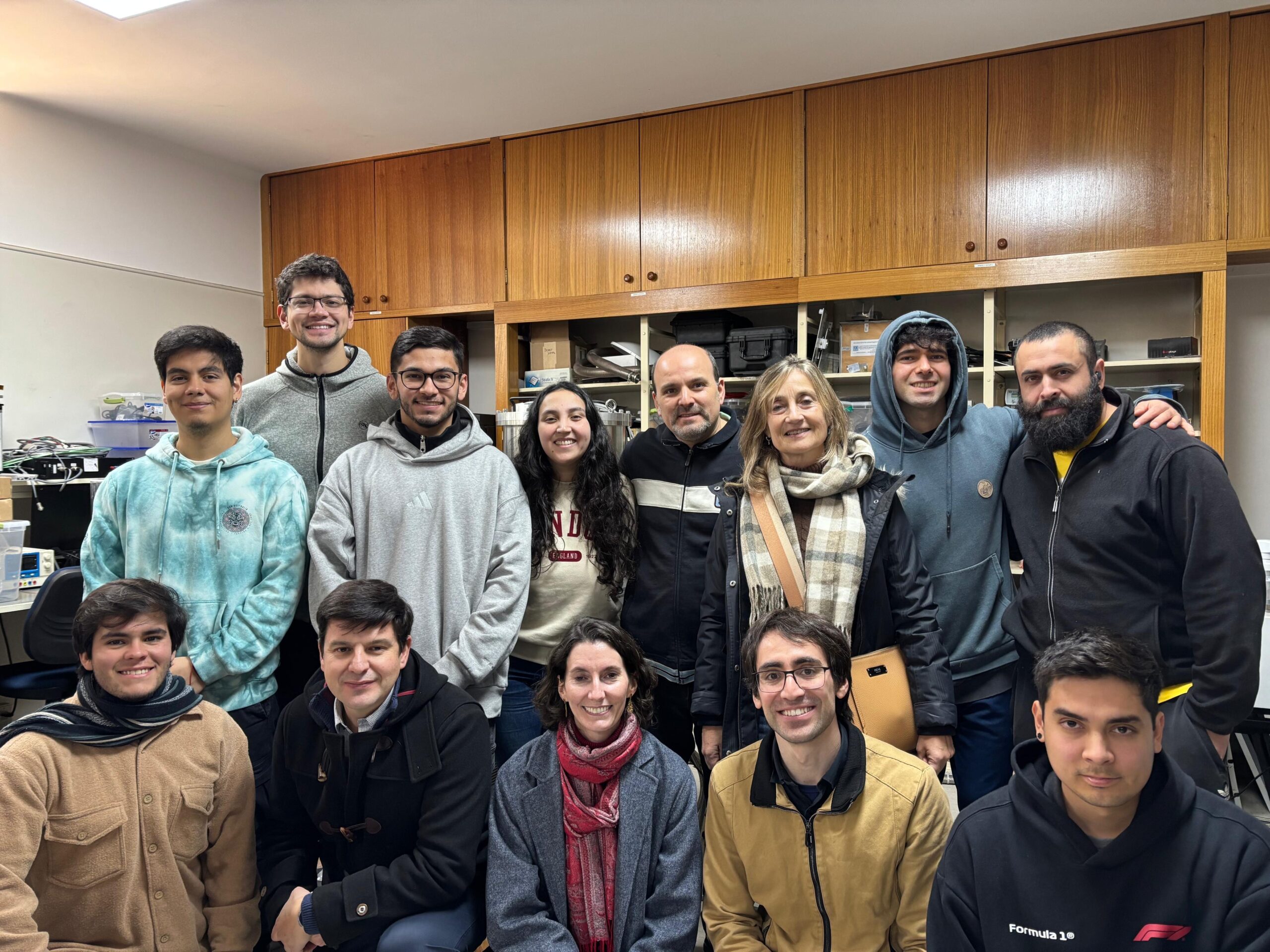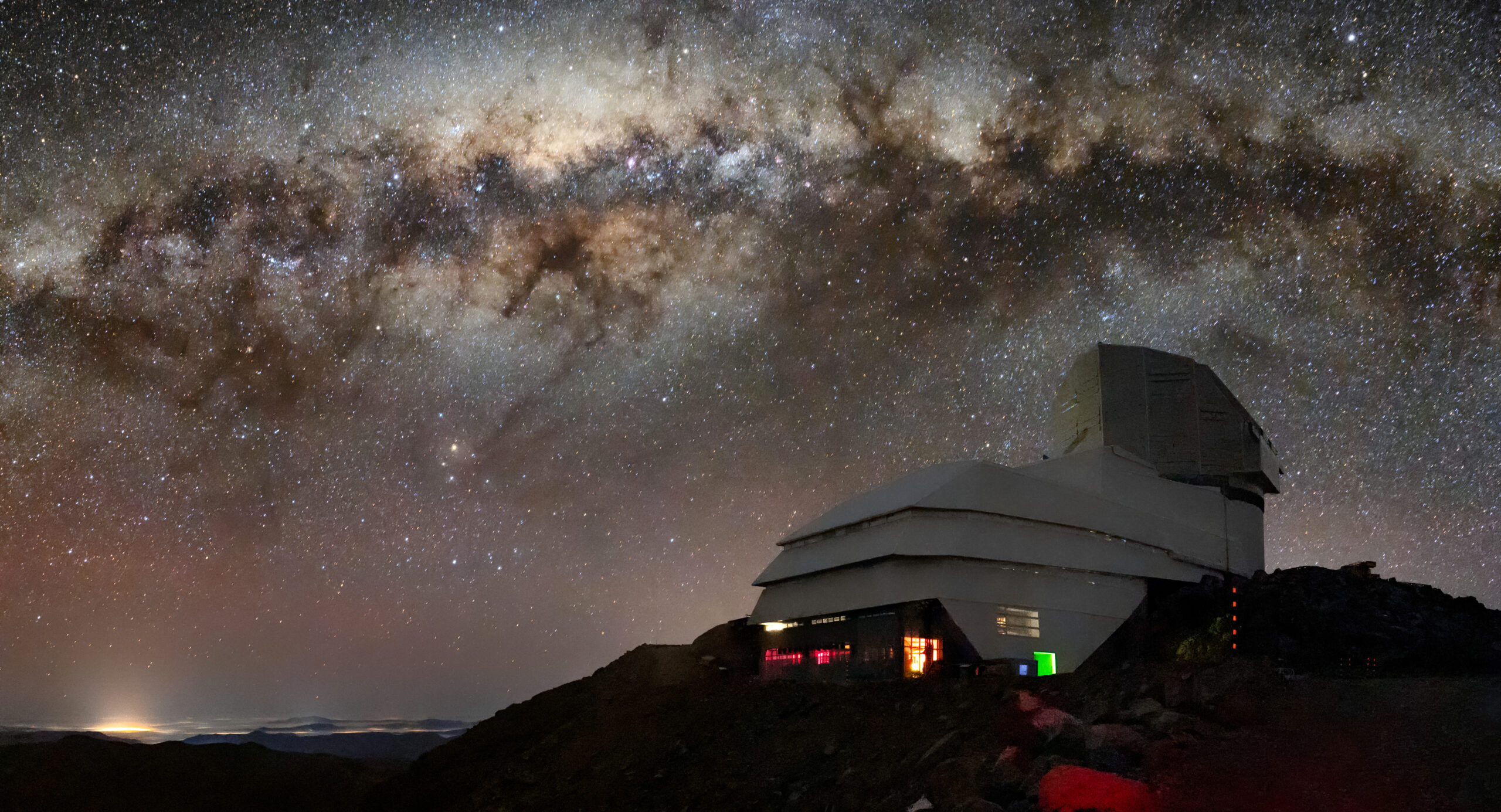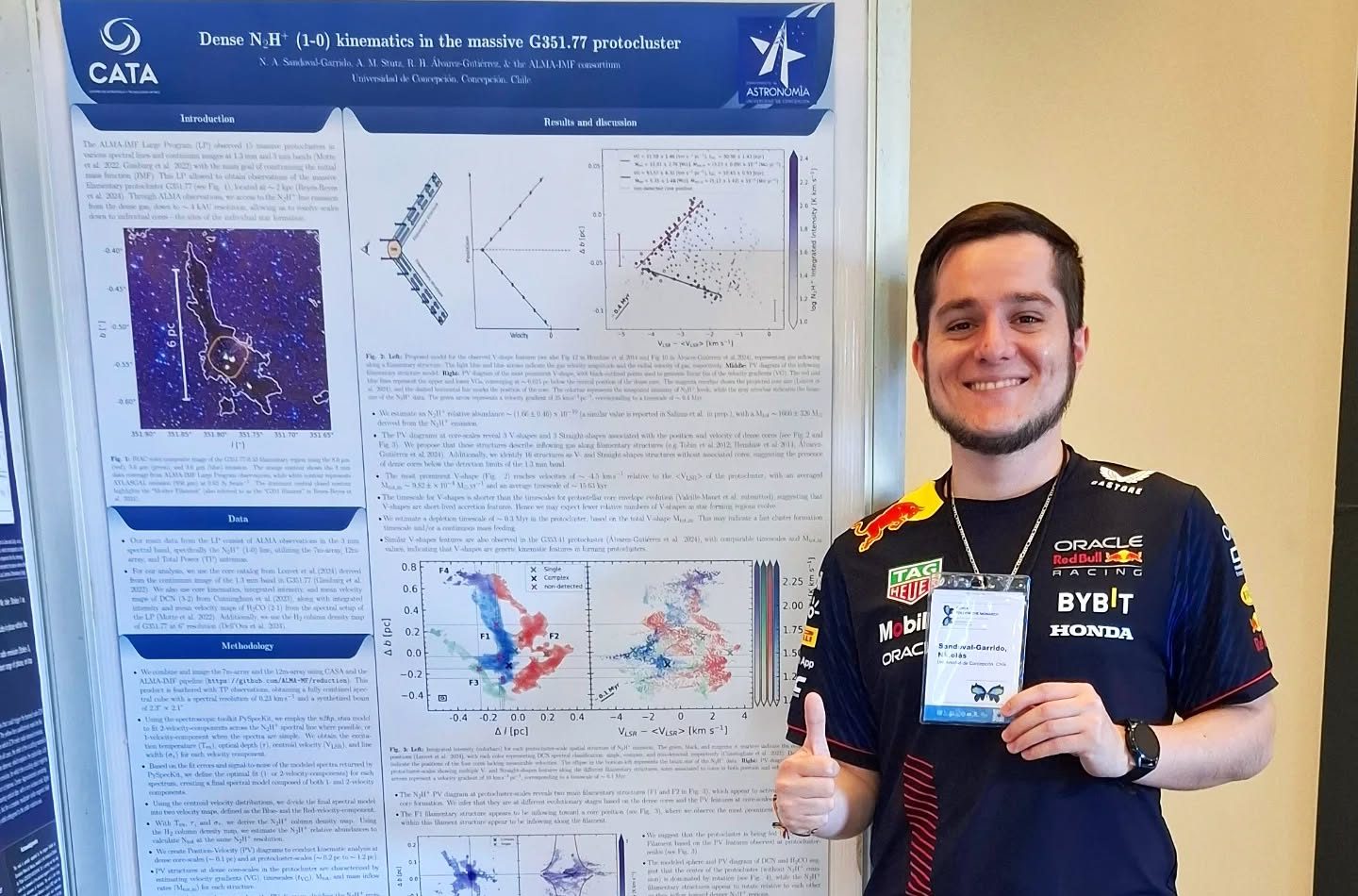
Nature Research Leaders ranking highlights CATA researcher’s studies
In the framework of his participation in two papers, the Center's Research Associate Claudio Cáceres was named in this list that presents the leading professionals and institutions in scientific research at a global level.
Two publications focused on studies on the atmosphere of exoplanets were highlighted in the Nature Research Leaders 2024 Ranking, where Claudio Cáceres, Associate Researcher at the Center for Astrophysics and Related Technologies, CATA and Universidad Andrés Bello, UNAB, appears as co-author.
The ranking presents the leading professionals and institutions in scientific research at a global level during 2023, taking as a reference the academic papers published in Nature and other publishing groups that are among the most prestigious worldwide.
The awards were for the works in which the CATA researcher participated, “A broadband thermal emission spectrum of the ultra-hot Jupiter WASP-18b”, highlighted in the Earth and Environmental Sciences category, and “Sulphur dioxide in the mid-infrared transmission spectrum of WASP-39b”, in the Physical Sciences area.
Both studies focus on using observations with the James Web Space Telescope (JWST) to characterize the atmosphere of exoplanets. In the first, the emission spectrum of the planet WASP-18b was detected and, in the second, sulfur dioxide was detected in the atmosphere of the planet WASP-39b by transmission spectroscopy.
“The truth is that I have always been interested in exoplanets. I find it fascinating to be able to understand the structure and atmospheric physics of planets outside the solar system. It’s like trying to do meteorology on other planets, using the little light we receive from these objects, some of which are completely different from those we can find in our solar system. The great future goal is to find a planet with optimal conditions to harbor life”, says CATA Associate Researcher Claudio Cáceres.
The professional also highlights this recognition in the sense that it includes only research of greater impact and relevance, so it is a way of visualizing the quality of the work that countries and entities carry out. ”
The fact that these articles are highlighted contributes to raise the ranking of the institutions where I do research, such as CATA and UNAB, and I think it is very positive. I am very happy about this fact and appearing here is certainly a recognition of the work that is being done,” added Claudio Cáceres.
The Nature Research Leaders 2024 ranking also positioned Chile as the second country in Latin America in scientific production, only surpassed by Brazil and ahead of other regional powers such as Argentina and Mexico.
Recent news
-
 Publicado el: 30/06/2025CATA Director strengthens ties in her second institutional tour
Publicado el: 30/06/2025CATA Director strengthens ties in her second institutional tour -
 Publicado el: 26/06/2025Vera C. Rubin: the telescope that watches the sky and anticipates the future of astronomy
Publicado el: 26/06/2025Vera C. Rubin: the telescope that watches the sky and anticipates the future of astronomy -
 Publicado el: 25/06/2025CATA researchers appointed as Full Professors at Universidad Andrés Bello
Publicado el: 25/06/2025CATA researchers appointed as Full Professors at Universidad Andrés Bello -
 Publicado el: 25/06/2025Study by young Chilean astronomer reveals new key parameter for understanding star formation
Publicado el: 25/06/2025Study by young Chilean astronomer reveals new key parameter for understanding star formation -
 Publicado el: 19/06/2025Rubin: The Universe’s First “Movie” That Will Transform Astronomy
Publicado el: 19/06/2025Rubin: The Universe’s First “Movie” That Will Transform Astronomy
Categories list
- Acknowledgments 18
- Astrobiology 5
- AstroCluster 1
- Black holes 13
- Corporativo 49
- Cosmology 4
- Descubrimientos 19
- Disclosure 45
- Exoplanets 13
- Extension 4
- Galaxies 17
- Galaxies formation 2
- Inter y Transdisciplina 2
- Local Universe 13
- Publications 5
- Sin categorizar 31
- Solar System 11
- Stellar formation 6
- Technology 9
- Technology Transfer 12